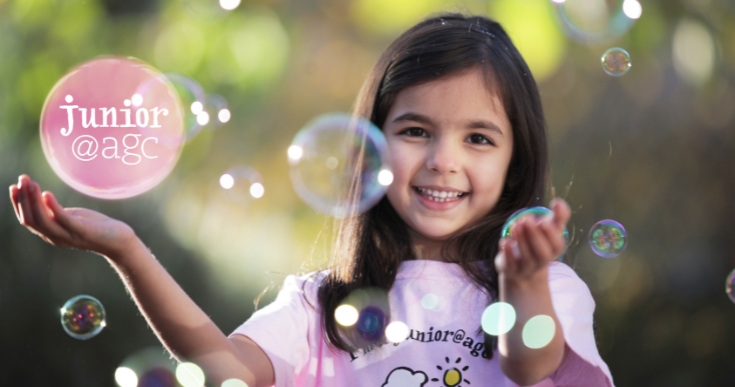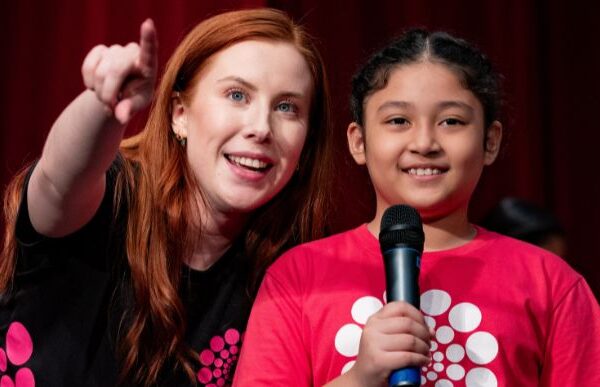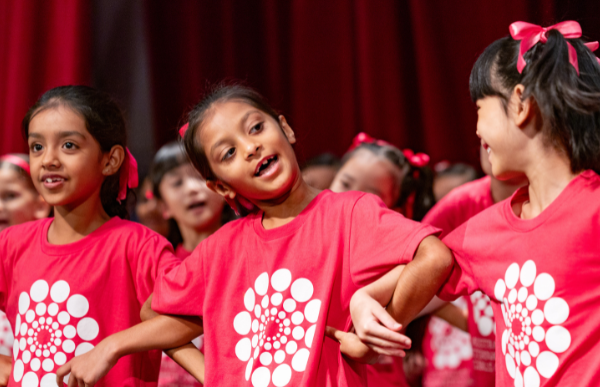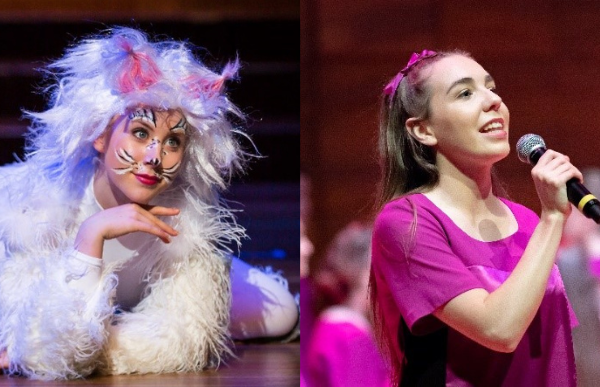
Why junior@igc really is ‘A very good place to start’!
Whether your daughter is someone who relishes any opportunity to sing, dance and create performances for family and friends, or is reserved and is looking for a way to build her confidence and find her voice, junior@igc is a place for all young girls to develop their performing arts skills in a playful and inclusive environment.
Built on the philosophy that “every child can learn to sing with encouragement at training”, junior@igc welcomes all girls who wish to join, irrespective of their prior experience or ability. Like all Training Levels at the AIGC, girls are not required to audition to join junior@igc, giving them the opportunity to discover the transformative benefits of the performing arts in a non-competitive learning environment. So how do we transform a love of singing into refined skill and why is junior@igc ‘a very good place to start’ for your daughter? Read on to discover more about our world-class musical education!

A curriculum designed for junior minds
For most girls, junior@igc might in fact be their first introduction to the performing arts, and one of the first places outside of school where they can expand their friendships and develop their transferrable skills. Whilst many schools may offer basic singing and dancing activities in their curriculum, the structure and content of a junior@igc lesson gives girls the opportunity to begin to build a foundation of vocal and musicianship skills, with a focus on developing awareness about the sound they create individually, as well as in a group
“By weaving music into the early years of a child’s life, we increase their musical aptitude and can set them on a course of a lifetime full of rich musical experience.” – Vicki King, Artistic Director, International School of Performing Arts
In every junior@igc class, girls will participate in fun warm up activities, and singing games, and learn sections of songs and movement to prepare for performances. Our friendly and experienced tutors use the renowned Kodály and Orff teaching approaches that prioritises physicalising and using creative play when teaching musical concepts. This helps translate written music into something more accessible and intuitive for our junior choristers – the perfect entry into learning how to read music!

junior@igc classes extend far beyond just singing. Movement activities, drama and games and team-building exercises are seamlessly woven into the curriculum, providing a truly holistic music education that encourages imagination and character development, as well as distinct musical skills such as pitching and blending notes. The variation and pace of each lesson also ensures that the girls won’t lose focus over the one hour class.
Building a foundation of transferrable skills for lifelong learning
While it’s true that parents marvel at the excellent music education offered in the junior@ program, often it is the subtle way that the curriculum develops the transferrable skills of choristers that parents appreciate most from our classes. Enhanced confidence, positive self-esteem, public speaking skills, discipline, social skills, and excellent teamwork, have all been noted by parents during their journey with our sister organisation AGC, and is the same philosophy of musical education we implement in the IGC.

“[Choir] has been a safe, accepting and inclusive space for her to be her best self… It has boosted her confidence, given her a space to build friendships outside of school, and has given her a place to shine.” – Erin Barry, Parent
From a neurological perspective, research has found that singing helps to strengthen connections in the brain that are necessary for cognitive and speech development, improved maths skills, increased memory retention and concentration in children. The earlier children begin to regularly practice singing, like in junior@igc, the more flexible the brain is, which makes learning new skills seemingly unrelated to music much easier.

Her first time on the concert stage
Another first for junior@igc choristers is performing on stage in front of an audience. As a junior@igc chorister, girls will work towards performance opportunities for their family and friends, with the mentoring of our knowledgeable Tutors. For young children, working towards this kind of long term goal is quite the commitment. But ultimately, the joy and pride felt when performing in front of family and friends, sharing what they’ve been practicing over a significant amount of time, is fitting great reward for this hard work, and tangible example of how our choristers develop resilience.
“I have never seen my daughter as happy as she was after her first concert” – Camilla Stinson, Parent

Ready to see your daughter fulfil her musical potential?
Experience the junior@igc curriculum for yourself and try a free class at our June Open Day! Meet our friendly Tutors and learn more about what we can offer your daughter in 2024 and beyond. Registration is free but essential.



